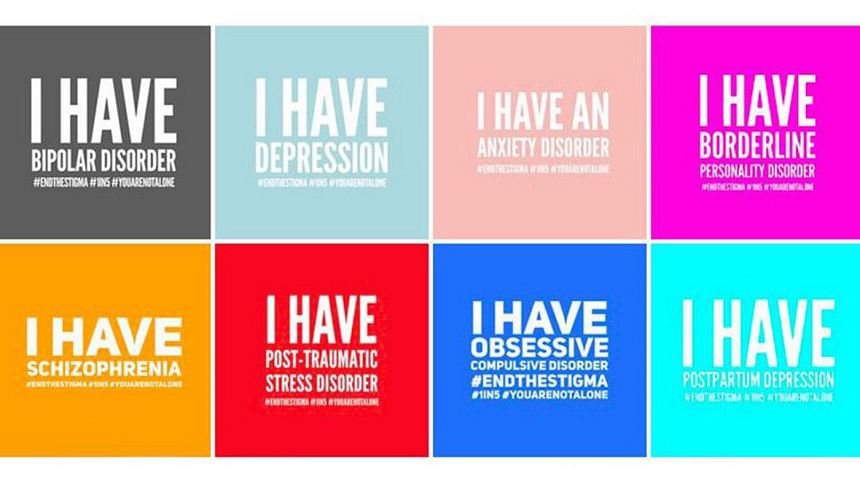People with mental illness fight stigma in social media

People who are living with mental illness and other invisible conditions are now fighting the stigma head-on, thanks to a new social media campaign.
Kat Selwyn Layton, a 28-year-old mental health advocate from North Carolina, initiated the campaign called #EndTheStigma on her Facebook account on December 30, with a collection of simple online badges featuring declarative statements about mental health on colorful backgrounds, reports Mashable.
The campaign lets users post the badges to their accounts as talk about living with invisible illnesses, conditions or disorders, and show others that they aren't alone, resulting in an online mental health movement that is helping them tackle shame and break the silence around often misunderstood experiences.
Within just one week, the campaign has morphed into a viral one, reaching social media users around the world.
Layton has even started creating badges on request, hoping to represent a spectrum of experiences for anyone who wants to advocate for their conditions, and created a Facebook page dedicated to the effort to accommodate the growing movement, reports Mashable.
The week-old page already has more than 26,000 likes, and is run by volunteer admins to monitor potentially triggering comments and for users who need referrals to professional resources.
Approximately 1 in 5 American adults — or almost 19% of the US population — experiences mental illness in a given year.
But people living with these conditions often stay silent against the stigma and negative opinions around them.
"Just because an illness is often invisible, it doesn't mean your battle should go unrecognised," Layton wrote on the campaign’s page.
Layton, who was diagnosed with bipolar disorder almost 10 years ago, told The Huffington Post that she was inspired to start the campaign after the death of Star Wars actress Carrie Fisher.
Fisher was a fierce advocate for mental health communities, and bravely vocalised her own experiences with bipolar disorder and other mental illnesses.

"I want the badges to start a conversation, make everyone feel a part of something and help them brave the path to ending stigma," she told The Huffington Post.
However, Layton and the admins of the End the Stigma page know that some people living with mental illness do not have the freedom to be so open about their experiences.
"We have noticed that some people aren't able to share the badges they relate to, as the stigma is still too much for them and sharing may have a negative effect on their lives," Gemma, an admin of the campaign’s page, recently wrote on it.
"We just wanted to say that we are still here for you and you are still part of this, even if you can't be open with the rest of the world," she said.
Nonetheless, the campaign's badges may be simple, but they're inspiring those living with mental illness and invisible conditions to share their stories and connect with the broader community.
"Be proud of your accomplishments," Layton wrote. "Be proud of your fight. Be proud of your survival."

 For all latest news, follow The Daily Star's Google News channel.
For all latest news, follow The Daily Star's Google News channel. 



Comments